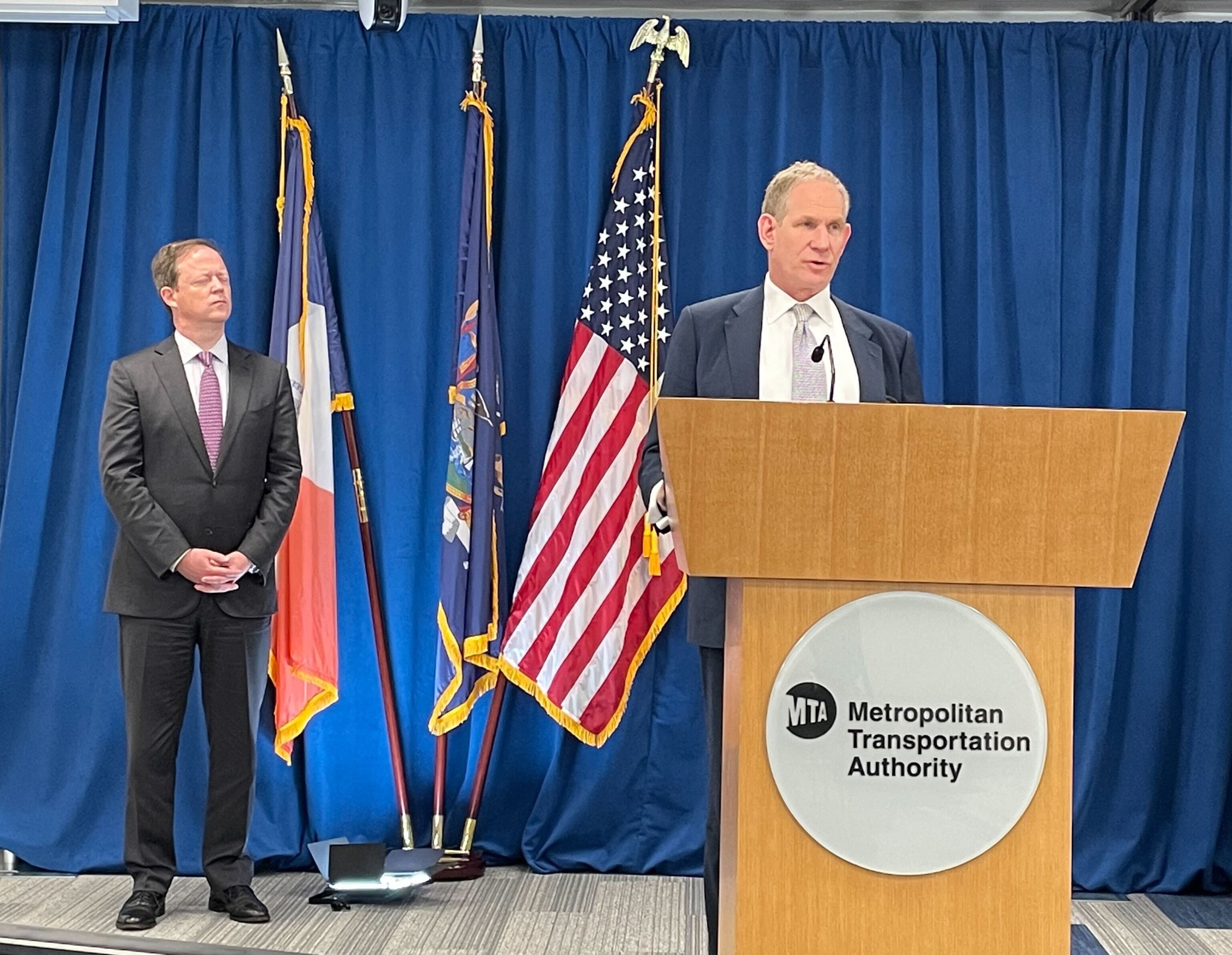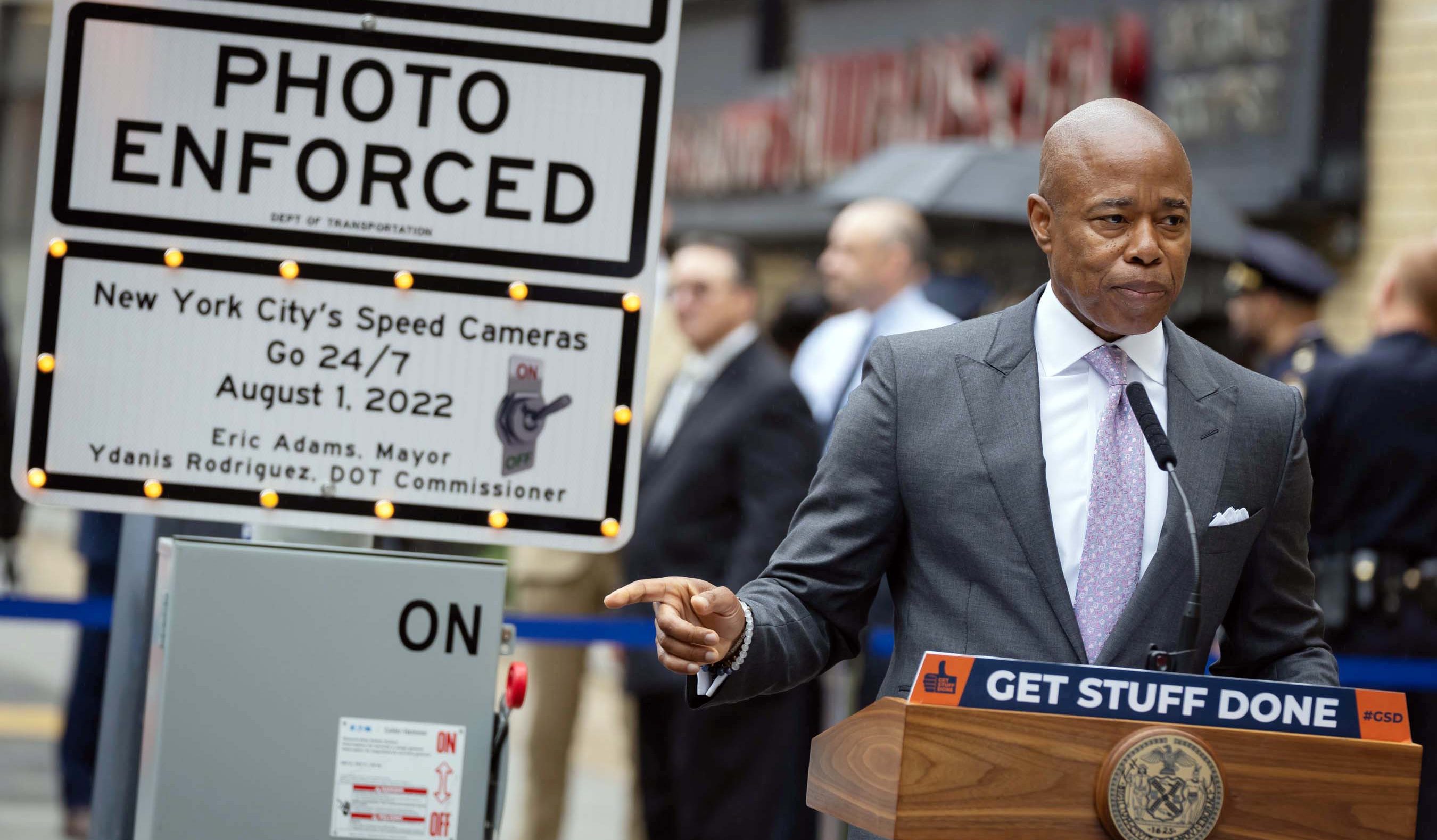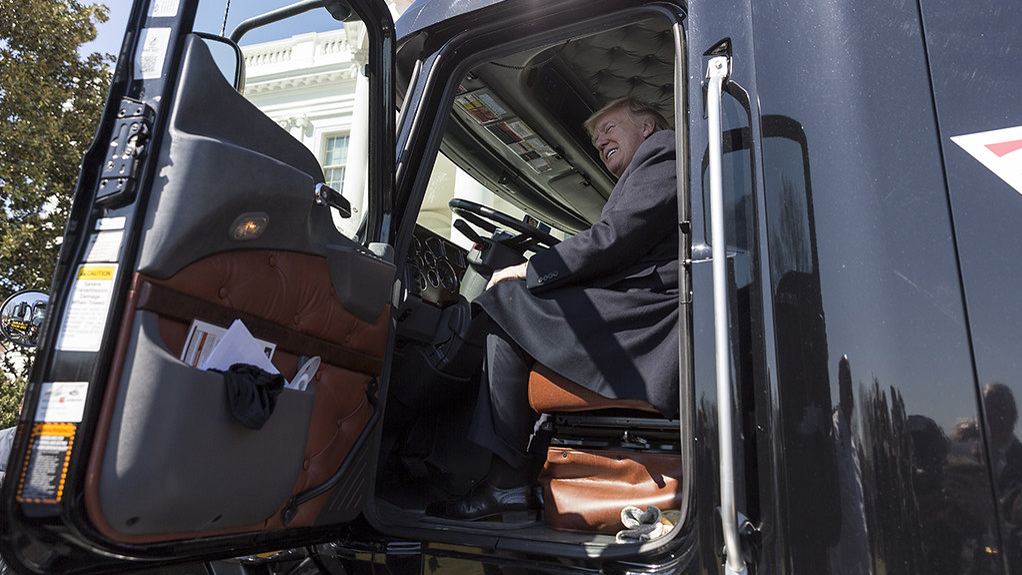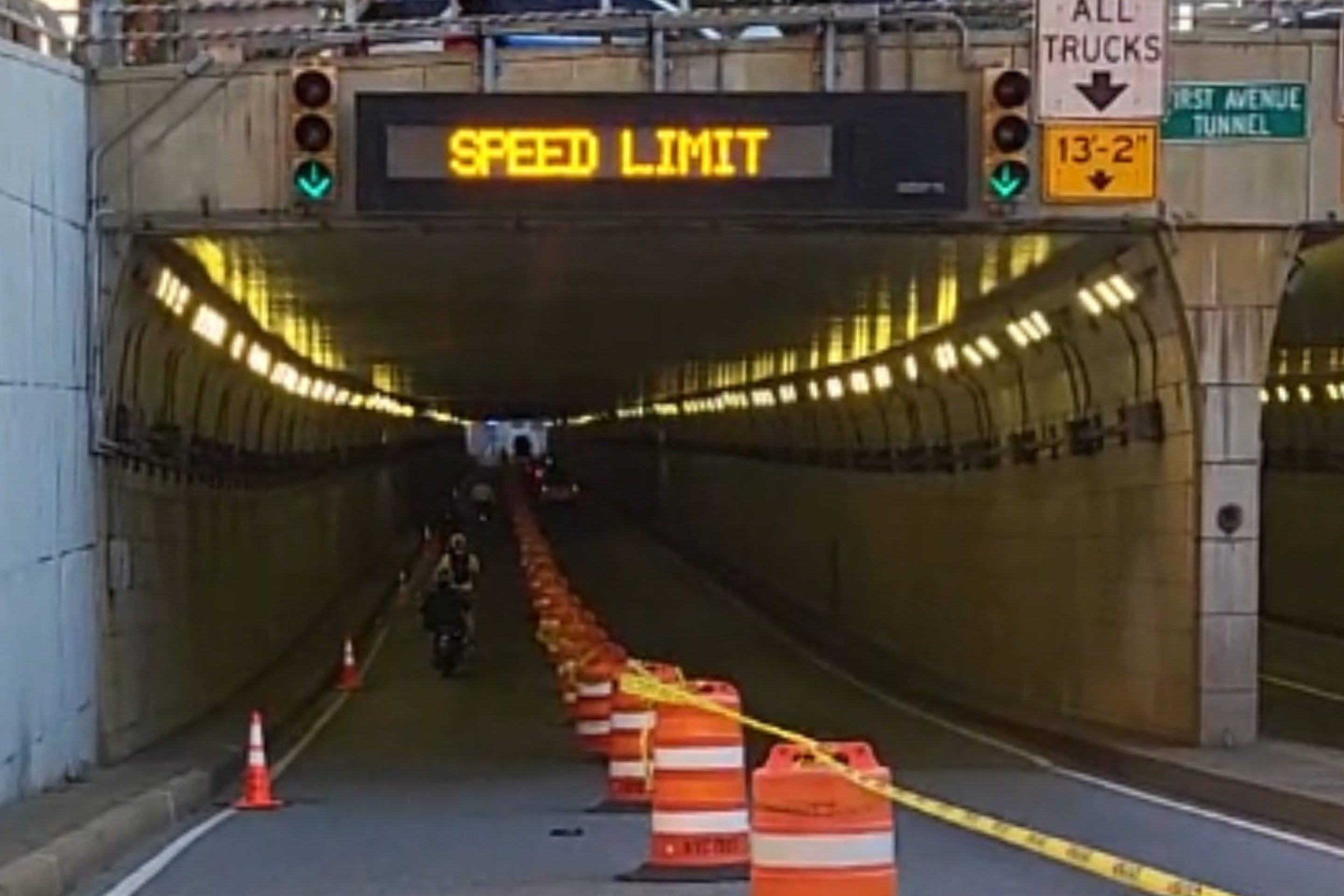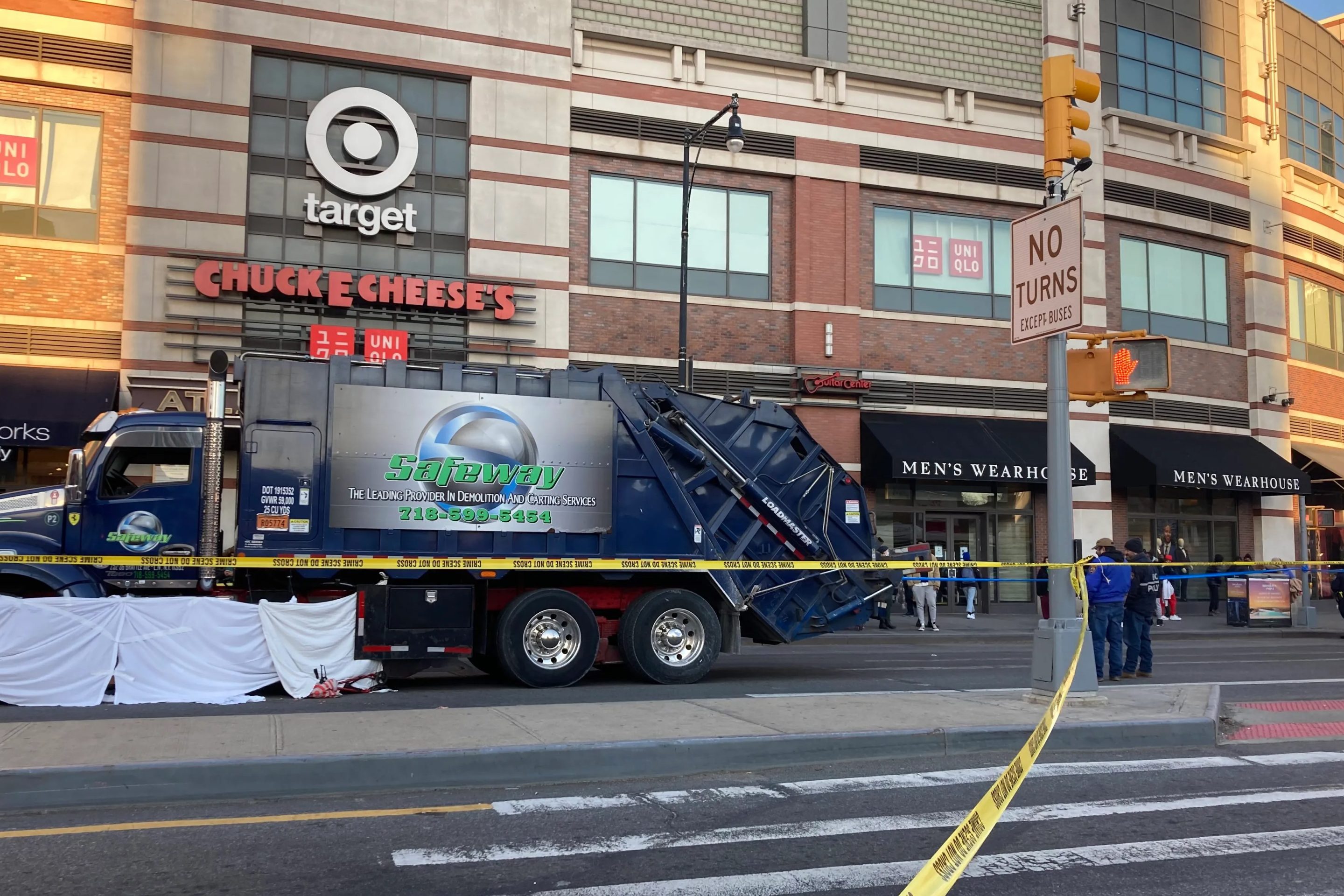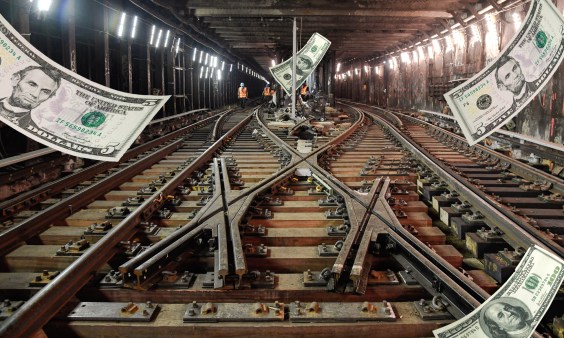There's a lot of pain in that single "if."
When MTA Chairman and CEO Janno Lieber was asked on Wednesday about congestion pricing, he used the ever-ominous conjunction as a jumping off point for nothing short of an unmitigated disaster.
"If it doesn't happen, at some point we can't award contracts that are dependent on having capital, the cash a couple of years later," he told Gotham Gazette's Ben Max at a Citizens Union "Civic Conversation" breakfast.
And what would the city's long-suffering transit riders lose out on if the federal government or other bad actors keep congestion pricing, and its billion dollars in toll revenue, from happening?
"What is going to be funded by [congestion pricing]?" Lieber asked rhetorically during a post-breakfast gaggle with reporters. "It's going to be the ... Second Avenue subway. It's a lot of ADA [accessibility improvements to] stations. It's a lot of zero emissions buses. It's a lot of state-of-good-repair to make sure our system continues to function well and doesn't fall apart. We need that $15 billion."
The MTA typically does not complete, or even plan to complete, its five-year capital plans in the five years they cover. Instead, the agency tries to sign contracts and commit all the money it intends to spend on projects identified in the plans, a goal it would fail to meet without the $15 billion in bonding revenue it expects to take in from the congestion pricing. tolls.
"When the MTA adopted [the 2020-2024 capital plan], it envisioned congestion pricing money starting in 2021," said Reinvent Albany Senior Researcher Rachel Fauss. "There is at least a two-year delay of out of five-year capital plan, and that is a significant delay. The MTA has said its goal is to commit the money in the five-year period. If congestion pricing is coming in [another] two years late, that puts those commitments at risk."
The current $55-billion capital program, which is also supposed to be funded by city and state commitments, federal formula funds and a mansion and internet sales tax, has already taken in funding at a slower pace than the 2010-2014 and 2015-2019 capital plans before it.
The question of whether congestion pricing should be delayed or not done at all has come up at recent gubernatorial primary debates. In the Democratic debate, Gov. Hochul wavered, but then cleaned up her comments on whether it should be delayed, while her rival Tom Suozzi called for a delay (only Jumaane Williams explicitly called for immediate implementation). All the Republican candidates for governor have said they would stop congestion pricing from happening at all — though none has said how he would fund the MTA beyond vague promises of cost-cutting.
And advocates have pointed out that there's no other way to replace the $15 billion that the MTA needs to finish the current capital plan, especially given that it has struggled in other revenue areas.
"There is no other source to fill that $15 billion hole," said Fauss. "Congestion pricing is the single biggest funder of the capital plan, it dwarfs any other source of funding. And particularly because it's not raised on the backs of riders, it is an environmentally beneficial and smart funding mechanism."
The current delay may not jeopardize congestion pricing. The MTA is still roughly within its timeline for answering all of the 400-plus technical questions raised by the U.S. Department of Transportation on the MTA's draft environmental assessment. Critics have questioned why the federal government is requiring such intense scrutiny, given that congestion pricing would improve the environment, reduce fuel use, make roadways safer and boost transit.
The MTA and U.S. DOT have refused to release the list of questions so that reporters can assess the depth of federal skepticism about the plan. In the past, Lieber has pulled back the veil on the kinds of questions Sec. Pete Buttigieg and his supposedly progressive team have raised.
“The models of air quality and traffic that we have to build are so complex,” Lieber said earlier this month. “We’re talking about a 28-county region, we have to model the impacts on traffic all the way down to close to the suburbs of Philadelphia. That’s the way that the federal environmental review requires.”
And on Wednesday, he gave another juicy nugget: That the MTA is being asked by the feds to assess whether congestion pricing will hurt cab drivers, many of whom are low income.
And he also said that the fight for exemptions from the tolls has reached a new era of ballsiness from city judges, as amNY's Kevin Duggan revealed:
